- Home
- Anne Stuart
Shadow Dance
Shadow Dance Read online
Praise for Anne Stuart
‘Anne Stuart delivers exciting stuff for those of us who like our romantic suspense dark and dangerous.’
—Jayne Ann Krentz
‘THE HOUSE OF ROHAN series begins with a scintillating, titillating, wickedly dark and sensual tale as Stuart brilliantly draws you in like a black widow spider. Intelligent characters swirl around a beautifully rendered, complex plot. The erotic overtones—one masterful scene after another—and dark hero simply add to the delicious story that captures the heart and soul.’
—RT Book Reviews on Ruthless, Top Pick!
RT Book Reviews Reviewer’s Choice Award winner for Best Sensual Historical Romance
‘Powerful’
—Publishers Weekly on Ruthless
‘The strong plotline and marvellously crafted characters flesh out a love story that’s a feast for those who prefer lots of heat and depth of plot.’
—RT Book Reviews on Reckless, Top Pick!
‘Anne Stuart proves once again why she is one of the most beloved and reliably entertaining authors in the genre. Every book she writes is witty, inventive, dark and sexy—a wild adventure for the mind … and the heart.’
—Susan Wiggs on The House of Rohan
‘For dark, triumphant romance … Anne Stuart can’t be beaten.’
—Elizabeth Lowell
‘Stuart crafts a heated romance with a glimpse into the darkness of passion and the humour of love while maintaining a strong plotline and a powerful secondary love story. These are marks of a grand mistress of the genre!’
—RT Book Reviews on Breathless, Top Pick!
THE HOUSE OF ROHAN
RUTHLESS
RECKLESS
BREATHLESS
SHAMELESS
And don’t miss the bonus story
THE WICKED HOUSE OF ROHAN
Also by Anne Stuart
SILVER FALLS
FIRE AND ICE
ICE STORM
ICE BLUE
COLD AS ICE
THE DEVIL’S WALTZ
BLACK ICE
HIDDEN HONOUR
INTO THE FIRE
STILL LAKE
THE WIDOW
SHADOWS AT SUNSET
TO LOVE A DARK LORD
LORD OF DANGER
Shadow Dance
Anne Stuart
www.millsandboon.co.uk
PROLOGUE
Romney Hall, Yorkshire Summer, 1815
He was packing when he heard the first scream. He shouldn’t have been doing his own packing—there were servants enough for menial labor such as that. But Phelan Romney was unconventional, a private, cynical man who had little need of servants, and Hannigan, the only man he trusted with his possessions, had disappeared on some obscure errand. Phelan had no intention of staying in the small, drafty manor that housed his parents for even one more night.
He should never have come home. He hadn’t wanted to—the open warfare between his drunken, philandering bully of a father and his hysterical mother had made Romney Hall a battlefield, and Phelan had had enough of battles during the past few years to last him a lifetime. All he had to show for his seven-year stint in the army was a knife scar damnably near his heart and a passion for exotic climates. He’d already developed a healthy distaste for life in England, particularly on the cold, remote moors of Yorkshire that his reckless younger brother loved so well.
He’d sold out his commission years before, the one he’d bought over his parents’ furious objections. He’d finally come home, not for the sake of his father, whose health after a lifetime of dedicated debauchery was finally failing; not for the sake of his mother, whose clinging possessiveness and shrill temper seemed to have increased with age, something he wouldn’t have thought possible. He’d come home for the sake of his half brother, Valerian, one of the very few people he’d ever dared let himself care for.
But not even for Valerian would he stay one day longer. The dark, cold Yorkshire nights made him feel as if he were suffocating. God willing, his father would live another twoscore years, and he himself would be allowed to roam the world at will. By the time he inherited his unwanted duties, perhaps his wanderlust would be slaked.
He heard the screams from a distance, and an unnamed horror swept over him. He knew the sound of his mother’s voice—it was raised often enough in rage or misery. No one else would be shrieking through the drafty halls of Romney Hall. And the word sounded eerily like “murder.”
He found her in the tower room, the cold stone bedchamber she’d never shared with Lord Harry. She was kneeling over her husband’s body, the pool of blood beneath him soaking into her skirts. “Murderer!” she screeched, her eyes dark and mad within her pale face, her long gray hair hanging witchlike around her. “You’ve killed your own father!”
Phelan followed his mother’s stare, to the sight of his half brother. Valerian was as motionless as the body of their father. Only Lady Margery moved, moaning, wringing her long thin hands, rocking back and forth over the body of the husband she’d despised.
“He’s murdered your father,” Margery screamed, her shrill voice bordering on madness. “I saw him, Phelan! He stabbed the poor man, who always loved his filthy little bastard more than you, his true son. He—”
“Enough!” Phelan thundered. He took a step toward his younger brother, and he could see the pain in his eyes, the anguish in his soul. Just as he could see the blood on his shirt, and on the knife in his hands. Of the three Romneys left alive in the room, only Valerian, the wild, reckless one, the one with no legal claim to the name, had actually loved Lord Harry. Only Valerian would truly grieve his passing. “Give me the knife, Val.”
Valerian moved across the room numbly, placing the knife in Phelan’s large, outstretched hand. It was warm, and wet with their father’s blood. Valerian raised his eyes to meet his brother’s, and for once his pretty face, the one Phelan had always teased him about, was pale and ugly with grief. “I didn’t, Phelan,” he said. “I heard your mother screaming and I—”
“Liar!” Margery shrieked. “I saw you, you vicious little killer! I saw you plunge the knife into his heart.”
There was no dismissing the shock on Valerian’s face as he looked at Lady Margery. “She’s lying,” he said desperately. “She’s mad, Phelan. You know I couldn’t have—”
“I saw you!” Margery screamed again. “And I’ll tell everyone. They’ll hang you. I’ll make certain they do. Patricide is a crime against nature. You’ll be hunted down like a dog if you try to run. You’ll be dragged through the streets in chains. Stop him before he tries to run, Phelan. Kill him if you must!”
“No!” Valerian cried. “I won’t run. I’ll stay right here, and find out who killed him. I’ll prove it …”
Lady Margery had risen to her knees, and Phelan watched in numb shock as her blood-streaked skirts flowed against her thin body. “Do something, Phelan!” she hissed. “Or they might not believe the truth. They might think you did it. Kill him before he runs away. If you don’t, I will. I won’t rest until he dies!”
Phelan moved then, grabbing his brother’s arm. “We’re leaving here,” he said. “Come along.”
“I won’t run,” Valerian said again, stubbornly.
It took Phelan only a moment to decide. In the distance he could hear the servants, coming to investigate Margery’s screams.
“Yes, you will,” he said. “And I’m going with you.”
CHAPTER ONE
Hampton Regis, Exeter
Fletcher Mowbray paused in the midst of his ruminations, staring at the sight of the young man walking down the narrow village street outside the best public house in Hampton Regis. It was the only public house in Hampton Regis, but since Mowbray himself was mine h
ost, it would have been the finest even if competition had been stiffer. It was early afternoon, the taproom was empty, and Mowbray had come out to take the summer air when he first set eyes on the stranger.
Strangers weren’t an uncommon sight in the small coastal village. Why, in the past month there’d been that couple who’d taken lodgings up at Sutter’s Head, not to mention the sailors who regularly passed through the port. But the boy walking down the street with deliberately casual grace was a different sort.
He was a slight lad, looking to be not much older than seventeen or eighteen. Any older and there’d be something more than pale golden skin adorning his angular cheeks. His eyes were too large for his narrow face, and his lashes would be almost effeminate if it weren’t for the fact that men seemed regularly more blessed than females when it came to eyelashes. He was delicately made, with a narrow foot, a well-shaped leg beneath clocked hose, neat brown breeches and coat, and a cap perched atop his rich brown locks. His shoulders were narrow and his hands small but well formed, devoid of jewelry or adornment. If it weren’t for his lamentably dark complexion, he’d be considered quite a good-looking lad.
“Good afternoon.” The boy had stopped outside the Fowl and Feathers, his gaze even and friendly, his voice low-pitched and melodious. “I was told you might have some work available.”
Mowbray shook his head. “These are hard times, lad,” he said. “I’ve got all the help I need.”
The boy shrugged, his rueful grin accepting the harsh facts of life and a difficult economy. “I don’t suppose you have anything I could do to earn a meal?”
Mowbray just looked at him. He wasn’t a man for charity—it never got you very far—but he wasn’t a hard man either. After a moment he nodded. “If you don’t mind work, I’ve got a stable yard to muck out. What’s your name, lad?”
“Julian. Julian Smith, sir.” He swept off his hat.
“Just call me Mowbray. Everyone around here does.” He peered at the lad more closely. “You been sick, boy? Your color’s a mite off.”
Julian Smith’s face turned a pale, becoming pink in response. “No, sir. I’ve just been out in the sun too long. I’ve been on the Continent.”
“Well, you ought to watch yourself. Too much sun can do a body harm,” Mowbray said sternly. “Come along with me. If I find you’re hard-working, maybe I can come up with something to last a few days. You look as if you haven’t eaten in a while.”
Julian’s smile was faint, charming. “The truth is, I haven’t, sir,” he said.
For a moment Mowbray didn’t move, shocked by the beauty of the boy’s smile. It was up to the lad, of course. If he’d a mind to, there were a great many easier ways to earn a living than mucking out a stable or carrying water for the kitchens, both of which required hard work and not much pay. Sir Neville Pinworth was known for his odd tastes, and he had more blunt than almost the entire town of Hampton Regis. If Julian Smith were to catch his eye, a comfortable future for the lad would be ensured. If he liked that sort of thing.
Somehow, Mowbray didn’t think he would. He made it his duty not to pass judgment, particularly on men like Pinworth who could buy and sell him five times over, whose goodwill was almost a requirement for those doing business in Hampton Regis. What Sir Neville found to warm his bed was his own concern. Mowbray just didn’t think Julian Smith would find the notion more appealing than shoveling horse droppings.
And he wasn’t going to put him in Sir Neville’s way if he could help it. The Fowl and Feathers was a prosperous enough business; surely it could afford another pair of hands and a strong back, even if the lad looked a bit frail. If Mowbray knew his wife, Bessie would take the boy to her massive bosom, just as she took all the strays who wandered through their tavern. He’d get no argument from her.
“The stable’s just behind the inn, lad,” Mowbray said. “Perhaps I can find a few days’ work after all. We need to build you up, and there’s nothing better than fresh sea air and good Exeter food to fatten you up. You look like a strong breeze could blow you away.”
Once more Julian produced that faint, enchanting smile. “I’m stronger than I look, sir.”
“Mowbray,” he corrected. “And we’ll see how strong you are, once you finish the stables.”
It took Julian Smith three and a half hours to muck out the old hay and manure, replace it with fresh bedding, and feed and curry the horses. They were prime horseflesh, Julian could recognize that, even though they were a far cry from the graceful Arabian stallions he’d ridden in Egypt.
He shoved a hand through his hair, grimacing to himself as he felt the short-cropped ends. It was undoubtedly cooler this way, he thought, rubbing an arm across his sweating forehead. If only he dared remove his jacket.
“You’ve done a fine job, lad.” Mowbray appeared at his elbow. “You can have a wash over there in the trough, and then come in for some supper. My Bessie’s wanting to meet you, and she says to tell you another pair of hands is always welcome, even if it comes with a mouth to feed. I don’t suppose you have a place to stay?”
“Not yet,” Julian said, shaking his head.
“Well, we’ve a spare room over the kitchen. You’re welcome to bed down there for a night or two.”
“You’re very kind,” Julian said shyly.
Mowbray looked embarrassed, his bluff, hearty face reddening. “Pay it no mind, lad. I expect we can use the help. We’ve got quality in town nowadays, and they’re a demanding lot. Don’t want them thinking we can’t live up to their standards.”
“Quality?” There was no missing the anxiety in Julian’s soft, musical voice.
“No need to worry, lad. You’ll be in the kitchens.” Mowbray gave him a reassuring cuff on the shoulder, and Julian reeled backward beneath the impact. “My Bessie will see to it that you’re well fed and safe.”
Safe, Julian thought, keeping his face determinedly cheerful. If only it were so easy. Even someone as warm and matronly as Bessie couldn’t accomplish that feat, he thought several hours later, sitting in the corner of the overwarm kitchen, sweat forming beneath his jacket, his stomach comfortably full, his eyes drifting closed from exhaustion. If only he could have just a few days of rest, of decent food, of freedom from having to look over his shoulder to see whether he was being followed.
Agnes, one of the overfed serving wenches, breezed through the kitchen door, her plump cheeks red with excitement, her massive bosom heaving. Her eyes immediately went to Julian, and he controlled his instinctive discomfort with an effort.
“Sir Neville’s here,” she said breathlessly. “Came with those two from Sutter’s Head. The three of them are wanting supper, and French brandy, and God knows what else. Dorrie’s busy in the taproom, and I’m going to need some help.”
Julian didn’t move. Bessie glanced up from the hearth, her broad face troubled. “Mowbray said as how the lad wasn’t to go into the common room,” she said.
“They’re not in the common room, they’re in the private parlor,” Agnes said impatiently. “And you know how the quality is—I should be back there right now. Send the boy up with the brandy.”
“I don’t know as I should.” Bessie looked torn by indecision. She’d been kind to him, immeasurably so, and it was a small enough thing to repay her. It wasn’t as if he stood in any danger from the local gentry of Hampton Regis. He’d faced far worse and managed to survive.
“I’ll do it,” he said, rising from the bench, glad to be away from the soporific fire.
“Why don’t you take off your coat?” Bessie suggested kindly, not for the first time. “You must be terribly warm.”
Julian shook his head, hoping no one would notice the beads of sweat on his forehead. “I was in the warmer climates for too long,” he said. “Even this weather feels chilly.”
Bessie shrugged, handing him a tray with brandy and three fine crystal glasses. “Mind the stairs. If anything happens to those glasses, Mowbray would have your hide. Mine as well.”
&n
bsp; Within a matter of moments Julian had seen through Mowbray’s bluster to the essentially kind man beneath. He grinned. “For certain he would,” he said.
Bessie gave him a playful swat with her beefy hand. “No sass from you, lad. And keep an eye out for Sir Neville.”
“Why?”
Bessie looked perturbed. “You are a young one, aren’t you, lad?”
“Seventeen last October,” he said, subtracting five years off his actual age.
“Time enough to learn about such things. Just be polite and keep your distance. He’s a wondrous sight, is our Sir Neville, but he’s got a way about him … Never mind,” Bessie ended with a sigh. “Just do as I say.”
Sir Neville was a wondrous sight indeed, Julian thought when Agnes let him into the upstairs parlor. He entered unobserved, his large eyes taking in the full glory of Sir Neville and his elegant guest, clearly in the midst of a flirtation.
Sir Neville was dressed in puce. Lace cascaded from his sleeves, adorned his neckcloth, dripped from his fingers. His thinning hair was brushed into a windswept style and faintly tinged with pink, and his complexion owed more to artifice than to nature, with a dead-white pallor offset by several cleverly placed beauty marks. He held a gold quizzing glass in one hand and a chicken-skin fan in the other, which he was languidly waving in the direction of a quite spectacularly attractive young woman.
Oddly enough, Julian thought, the woman, beautiful though she undoubtedly was, was far more masculine than the gentleman was. She was large-boned, healthy-looking, and her golden-blond hair was curled around her broad, creamy white shoulders. Her face was lovely, with huge gray eyes, high cheekbones, a large, sensual mouth, and a chin perhaps a trifle stronger than fashion might decree perfection. She was dressed in pale blue, and if her waist were a bit wide and her satin-slippered foot a bit large, such small inadequacies were more than made up for in the charm of her smile.
They both spied Julian at the same time, and their laughing banter stopped abruptly as they stared at him. He wished he had a hand free to tug at his collar, but had to content himself with keeping his face modestly downcast, hoping he’d be able to escape without further notice.

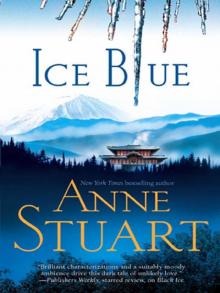 Ice Blue
Ice Blue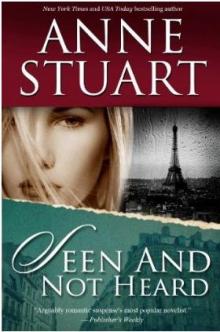 Seen and Not Heard
Seen and Not Heard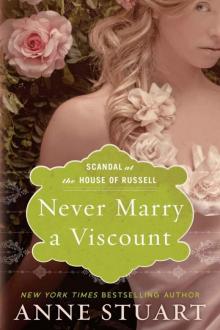 Never Marry a Viscount
Never Marry a Viscount Heartless
Heartless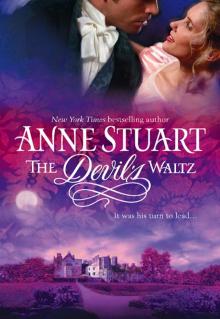 The Devil's Waltz
The Devil's Waltz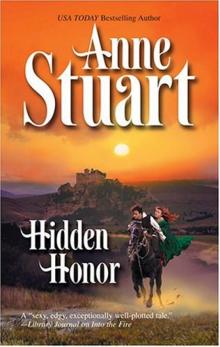 Hidden Honor
Hidden Honor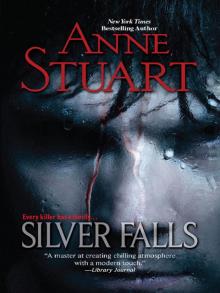 Silver Falls
Silver Falls Fire and Ice
Fire and Ice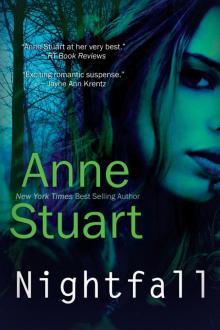 Nightfall
Nightfall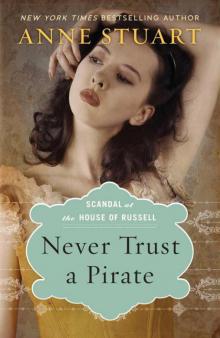 Never Trust a Pirate
Never Trust a Pirate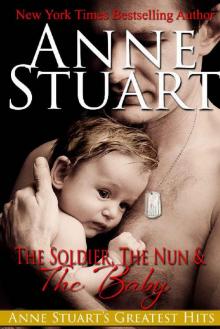 The Soldier and the Baby
The Soldier and the Baby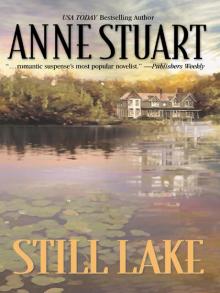 Still Lake
Still Lake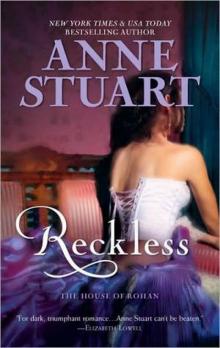 Reckless
Reckless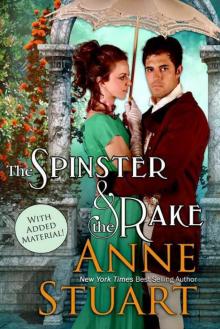 The Spinster and the Rake
The Spinster and the Rake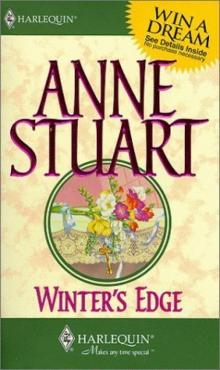 Winter's Edge
Winter's Edge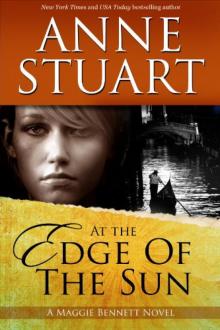 At the Edge of the Sun
At the Edge of the Sun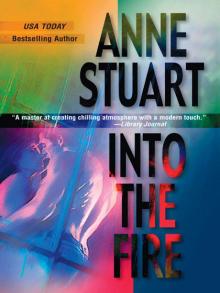 Into the Fire
Into the Fire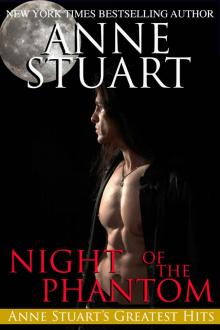 Night of the Phantom
Night of the Phantom Ritual Sins
Ritual Sins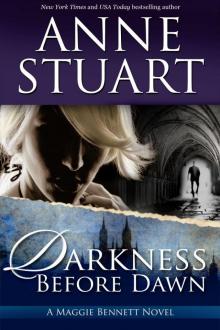 Darkness Before the Dawn
Darkness Before the Dawn Against the Wind
Against the Wind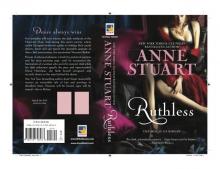 Ruthless
Ruthless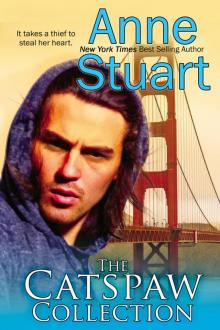 The Catspaw Collection
The Catspaw Collection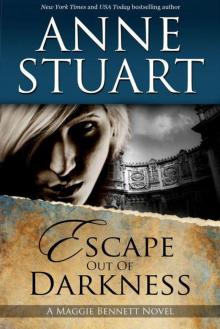 Escape Out of Darkness
Escape Out of Darkness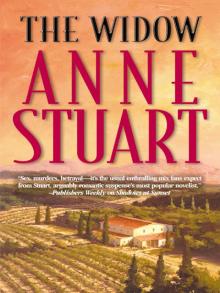 The Widow
The Widow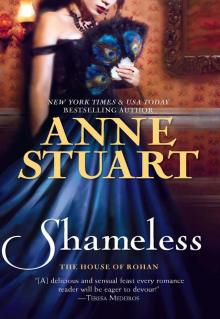 Shameless
Shameless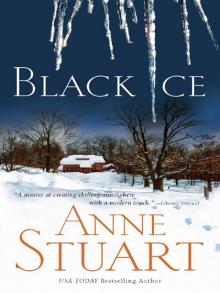 Black Ice
Black Ice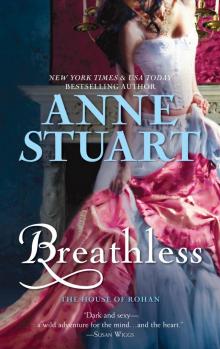 Breathless
Breathless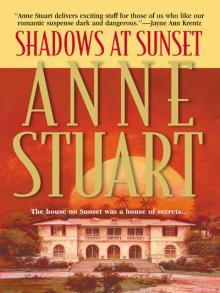 Shadows at Sunset
Shadows at Sunset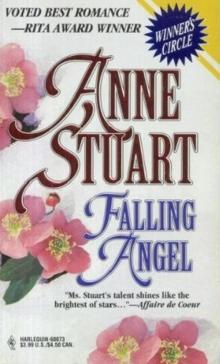 Falling Angel
Falling Angel Housebound
Housebound Cold as Ice
Cold as Ice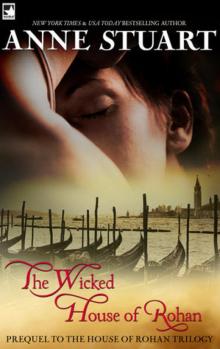 The Wicked House of Rohan
The Wicked House of Rohan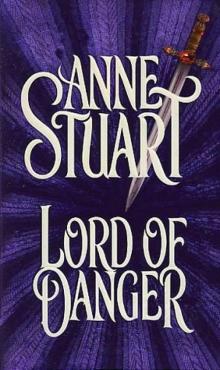 Lord of Danger
Lord of Danger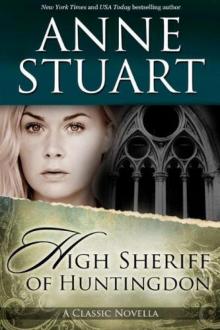 The High Sheriff of Huntingdon
The High Sheriff of Huntingdon Wildfire
Wildfire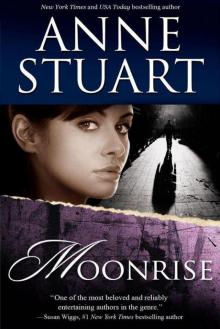 Moonrise
Moonrise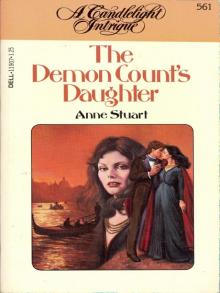 The Demon Count's Daughter
The Demon Count's Daughter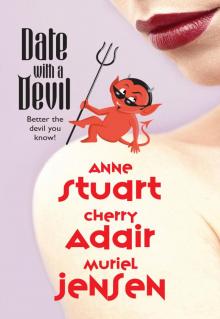 Date With a Devil
Date With a Devil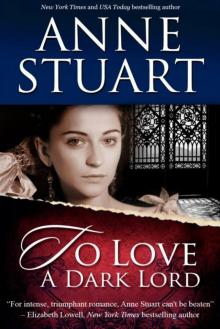 To Love a Dark Lord
To Love a Dark Lord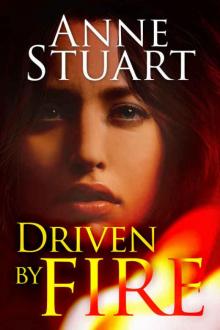 Driven by Fire
Driven by Fire Special Gifts
Special Gifts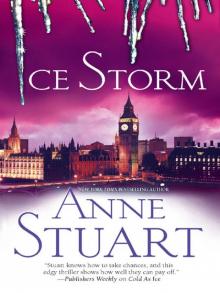 Ice Storm
Ice Storm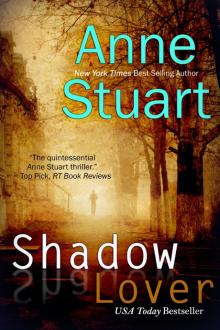 Shadow Lover
Shadow Lover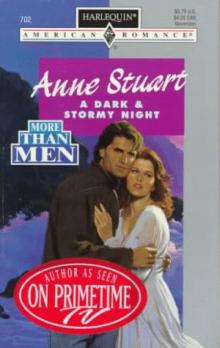 A Dark & Stormy Night
A Dark & Stormy Night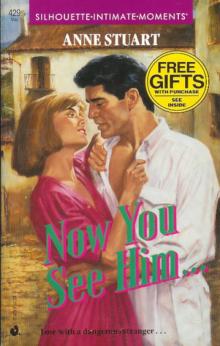 Now You See Him...
Now You See Him...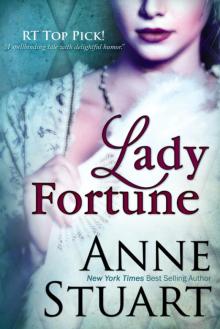 Lady Fortune
Lady Fortune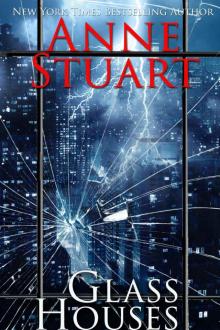 Glass Houses
Glass Houses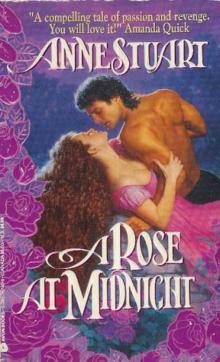 A Rose at Midnight
A Rose at Midnight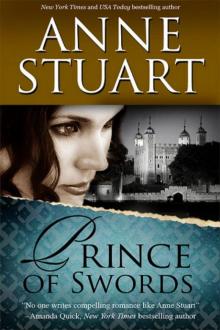 Prince of Swords
Prince of Swords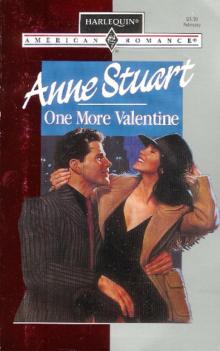 One More Valentine
One More Valentine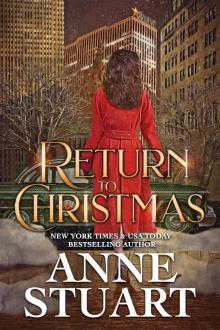 Return to Christmas
Return to Christmas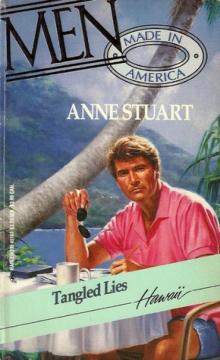 Tangled Lies
Tangled Lies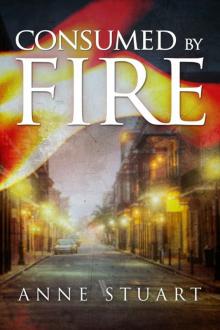 Consumed by Fire
Consumed by Fire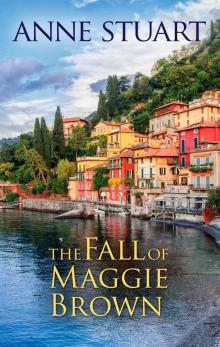 The Fall of Maggie Brown
The Fall of Maggie Brown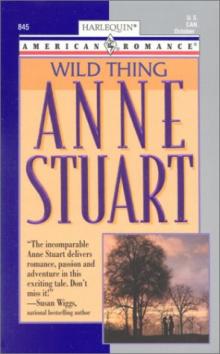 Wild Thing
Wild Thing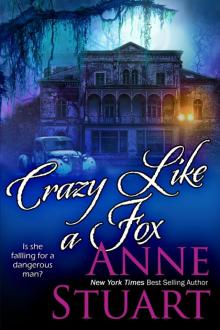 Crazy Like a Fox
Crazy Like a Fox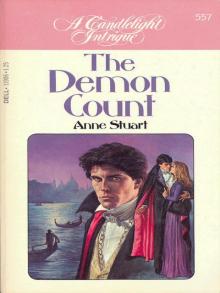 The Demon Count
The Demon Count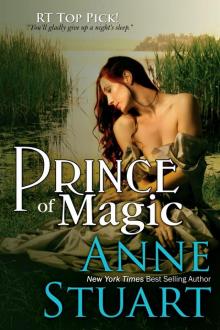 Prince of Magic
Prince of Magic Wildfire (The Fire Series Book 3)
Wildfire (The Fire Series Book 3)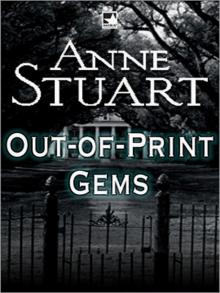 Anne Stuart's Out-of-Print Gems
Anne Stuart's Out-of-Print Gems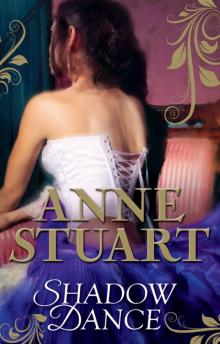 Shadow Dance
Shadow Dance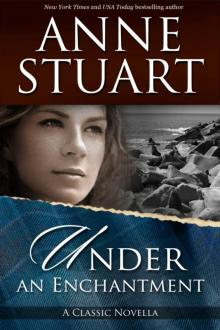 Under an Enchantment: A Novella
Under an Enchantment: A Novella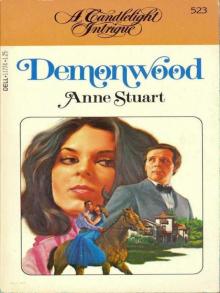 Demonwood
Demonwood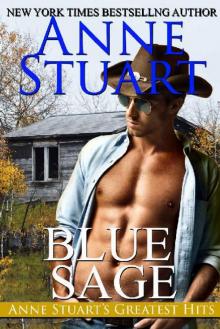 Blue Sage (Anne Stuart's Greatest Hits Book 3)
Blue Sage (Anne Stuart's Greatest Hits Book 3)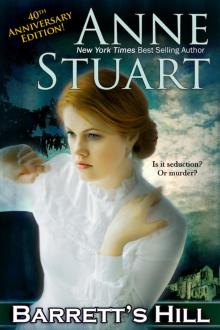 Barrett's Hill
Barrett's Hill Angel's Wings (Anne Stuart's Bad Boys Book 5)
Angel's Wings (Anne Stuart's Bad Boys Book 5)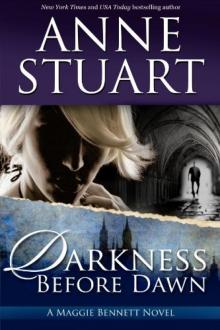 Darkness Before Dawn
Darkness Before Dawn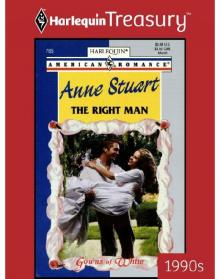 The Right Man
The Right Man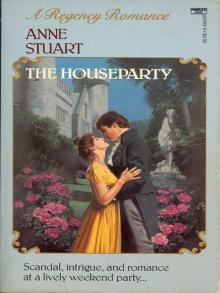 The Houseparty
The Houseparty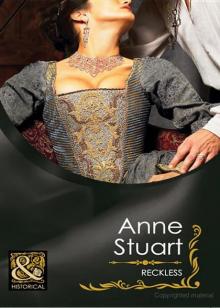 Reckless_Mills & Boon Historical
Reckless_Mills & Boon Historical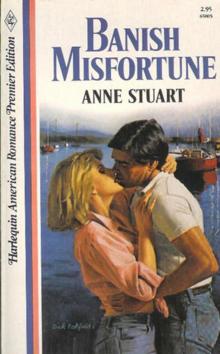 Banish Misfortune
Banish Misfortune Angel's Wings
Angel's Wings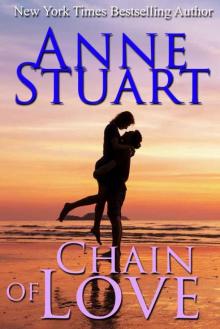 Chain of Love
Chain of Love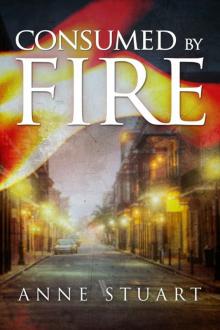 Consumed by Fire (The Fire Series)
Consumed by Fire (The Fire Series)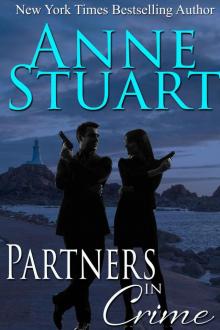 Partners in Crime (Anne Stuart's Bad Boys Book 4)
Partners in Crime (Anne Stuart's Bad Boys Book 4)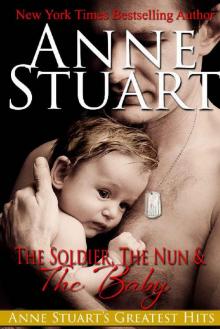 The Soldier, The Nun and The Baby (Anne Stuart's Greatest Hits Book 2)
The Soldier, The Nun and The Baby (Anne Stuart's Greatest Hits Book 2)